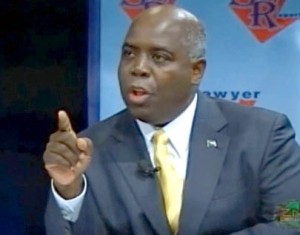 Nassau, Bahamas – Philip Brave Davis minced no words as he went on the attack against the 51% sale of BTC to Cable and Wireless.
Nassau, Bahamas – Philip Brave Davis minced no words as he went on the attack against the 51% sale of BTC to Cable and Wireless.
Clearing up the misconceptions cast by the WUTLESS FREE NATIONAL MOVEMENT government, Deputy Leader of the PLP, Davis, stared as a guest on the Sawyer Report aired on ZNS.
The PLP strongman made revelations of countless untruths told by the FNM to the Bahamian people.
Davis expressed his disappointment with the Ingraham administration describing the plot by the FNM to sell 51% of BTC as like, “Murder in the Cathedral”.
The Cat Island Rum Cay and San Salvador MP castigated Ingraham’s BTC Privatization Committee headed by T. Basil Donaldson; calling the working group “surrogates” who were set to deliver the bidding of their King.
Davis reminded the national audience that country is not interested in the past and what could have possibly been in the sale of BTC by a former administration. He pointed to the fact that the FNM holds the decision at a time when stakeholders in the Corporation are not welcomed to the details.
Davis also presented names of the former BTC bidder Bluewater, a group that Ingraham lied and said he did not know existed, yet, his [Ingraham] government paid some $1.9 Million of wasted taxpayers funds, to chase the group from around the table.
The PLP deputy leader also presented a series of questions, which have since surfaced in the sale. Davis also questioned the local representative for C&W who previously served on the BTC board at the behest of Hubert Ingraham. He asked how did C&W get to the table as he pressed the “Sunshine Government” to table the Memorandum of Understanding; a document not even discussed by C&W.
Who is collecting a said 3% finder’s fee for the sale of BTC? Davis asked as he further expressed his disappointment in Ingraham, who has gone on record belittling the professionals at BTC.
Davis reminded the national audience that it was Hubert Ingraham, who in the 1990s, when talks of Privatization first began, stated that Cable and Wireless need not come to the table. Davis asked, “What has transpired since then….?”
Unions on the other hand are at a tipping point over the sale and a national strike could be imminent.


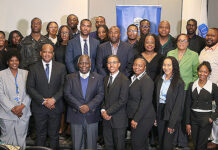
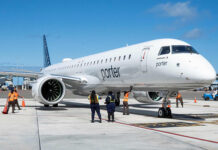
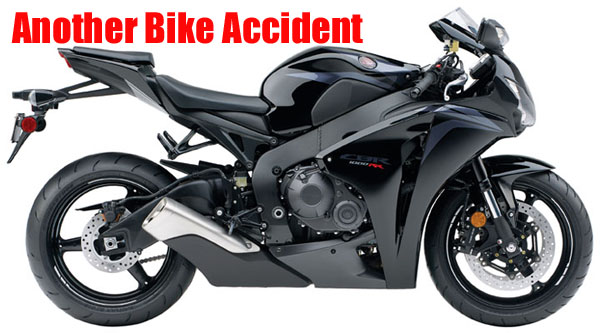
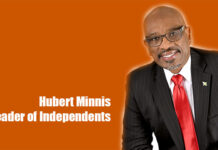


the PLP really suck. Cabinet approved the BTC deal and they couldn’t find the time to sign it? Couldn’t sign the Bahamar deal, couldn’t sign the straw market deal, the stadium was a full package not costing a penny and they couldn’t get that started?
look like brave was getting the finders fee under the plp deal mmmmmmmmmmm
The fact is Davis never ran and hid from his involvement as the legal rep. for Bluewater. What I find disturbing and DISHONEST is the fact that INGRAHAM, HIS MINISTER TOMMY, Donaldson, Francis nor Brown none could answer the question; WHO IN THE FNM IS COLLECTING THE 3% FINDER’s FEE IN THE SALE OF BTC?
WHY IS THAT SO SECRETIVE? YALL REALLY THINK PEOPLE DUMB NAH!
Hubert Ingraham in our eyes has lead the most CORRUPT GOVERNMENT IN ALL THE HISTORY OF THE BAHAMAS! FROM KAMALAME CAY to MONAVIE to the SWEETHEART DEAL OF BTC!
WE NEED CHANGE!
BP
Media, I think you and Seer were on the same point you know. He’s saying that Hubert and C&W won’t disclose the MOU because the only thing on it is the signatures. They will put in the details after they see what the public reaction is.
My only issue with Brave on Jerome’s show was he took a while to get to the dirt. Don’t run from the Blue Water talk because once he got past that, it was all down hill for Jerome, who I believe still trying to suck up to make sure he have a job after elections. Don’t worry Jerome, Papa opened the airwaves. One of them will hire you.
The most essential things to us as a people are produced, procured, or provided from outside of the Country. Food, shelter, defence, medicine,fuel, I could go on and on. Please people, open your minds and stop posting fally.
Like the great leader papa has declared, they wanted it for themselves, and the employees want to continue getting greased. All good things end, and the end is neigh…like it or lump it, to quote PGC..
We put the Question to you Thomas, “WHO IN THE FNM IS COLLECTING THE 3% FINDER’s FEE IN THE SALE OF BTC? MUMS THE WORD!
BP
Media,
If that was your bidness, you would know by now!
What I wonder from its is this; Why is the FNM so secretive with the SWEETHEART DEAL? WHos is getting the 3% finder’s fee and who is Sharon Brown?
BP
The question is media.
Is there really a Memo of Understanding?
Does it Exist?
Maybe that’s why Mr. Shaw could not divulge any information about it…. nor can the Government.
Is it quite possible that this Memo of Understanding be a ‘red herring’ on BTC for Public Opinion?
Until this Memo is revealed no one will know for sure….it’s an ACE card the Government holds in their hand in a ‘risky’ Poker Game!!!!
Oh seer OPEN YOUR EYE and unclog your ear. Didn’t you hear the Cabinet office read in a press statement we broke here first that the Government has signed a memorandum of understanding between themselves and C&W? The Ingraham government say they signed one and issued a press statement on that fact. That aside are you now suggesting the Ingraham government LIED AGAIN?
BOY I TELL YA, YALL MAKING ME DIZZY NAH!
BP
Yes media the suggestion is that the Ingraham administration has LIED AGAIN,the M.O.U is being prepared as we speak.
I love the internet! I watching over and over and what I get is the only reason Bluewater never got BTC was because Perry Christie didn’t sign the document….
Digicel; Jamaica’s most successful company
Jan 29th, 2009 by Jaylar 3 comments
Share
An Irish Company, arriving in Jamaica in 2001 has become the most beloved corporate citizen.
Unknown, untried, Digicel, a new Irish Company, grew
from 0 to 100,000 customers in less than 100 days.
Within one year, it was the market leader in mobile
phone service, within two years, the most successful
and beloved company in Jamaica.
From Jamaica, Digicel expanded into Caribbean territories,
from Haiti to Barbados, and now into the Pacific.
The incredible success of Digicel is due to the
incredible failure of Cable & Wireless.
It is due to the perfect reading of the Market,
the Culture and experience of Jamaicans.
History
Jamaica, as many small nations, had its utilities
owned by the government. The Jamaica Telephone
Company existed until shortly after 1988.
It offered flat rates to businesses and private homes.
That one could apply for a telephone when they were
pregnant and receive it when the child was fifteen
years old was the standard service.
That no Internet was provided, that cell phones had
not as yet reached the Island, was off set by the
low rates.
After Gilbert Hurricane, a clever machination to fool
the population into making the company ‘public’ was
launched.
It was a trick designed to reap incredible profits
for the kind of robber barons who make Jay Gould
look like an amateur.
As bad as the Jamaican Telephone Company was, no one
could have imagined how much worse Telecommunications
of Jamaica, (a front for Cable & Wireless of the U.K.)
would be.
No one could have predicted that inter-Parish long distance
rates would be implemented on an island about the size of
Manhattan, that cell phone service would be unbelievable
expensive and remarkably poor, or that Internet would be
limited, and not introduced until 1995.
If one attempted to create the worst possible corporate
citizen, Cable & Wireless would exceed all boundaries.
As bad as the service, the costs, the attitude of Cable
& Wireless, the fact its attorney was hired by government
to write The Telecommunications Act (1994) which would
give C & W ALL RIGHTS TO ALL FORMS OF
COMMUNICATION, even those NOT INVENTED
YET for the next FIFTY YEARS, moved it into realms
‘no capitalist had gone before.’
Fortunately for Jamaica, there were enough ‘geeks’ to
influence the government, have the ‘Act’ abandoned,
and open the market to competition.
Enter Competition
Where other companies hesitated, an Irish Company,
to be known as Digicel, did not.
Expecting to gain three hundred thousand subscribers,
the profit line was set.
More expensive per minute than C&W, but charging
by the second, offering ten times the coverage of
C&W, Digicel virtually sold off all its handsets within
a day at the smaller outlets, within a week at others.
Beginning in April 2001, by August it had surpassed
C&W’s mobile market share, and kept growing.
Another competitor never seemed to be able to get out
of the starting gate, morphing through different owners
and names, finally, becoming Claro in 2008.
What prompted the rush to Digicel was the hatred people
had for C&W. Whatever company that was NCW
(not C&W) would gain the market share.
Trying to offer cheaper features, give aways, even
changing its name, can not save C&W.
Everything about it, from its history to its current
management structure, has made it the most hated
company in Jamaica.
Considering the Jamaica Public Service Company and
National Water Commission, (monopolies) to retain
the number one position in opprobrium says quite a
bit about C&W.
Bigger Better Network?
Digicel is a ‘dry weather’ network. As soon as there is
a storm, there is no service. One does not need a Cat 4
Hurricane, Tropical Storm Gustav took down Digicel’s
service for two days. C&W and Claro weathered well.
C&W confronted Ivan and Dean, never losing service
despite the devastation those two hurricanes caused.
Digicel went out at the onset of Ivan and did not return
in some sections for about four days. Digicel failed
during Dean.
Lime (the new name of C&W) and Claro have not had the
business acumen to capitalise on Digicel’s weakness and
despite blandishments have not taken a role in the various
disaster preparedness organisations.
The cost of using Digicel is artificially high. It was
calculated on the belief that there would be no more
than 300 thousand customers, not 1.9 Million, nor
that it would have 70% of the Mobile Market.
No reexamination of costs per call from the network
intra or extra has been accomplished.
Contributing to sports, to disaster preparedness, to
numerous causes, Digicel is the most beloved company
in Jamaica.
Its foray into Haiti has been phenomenal, within one
year they reaching 6.5 Million subscribers.
How Do they Do It?
Digicel recognises the sentiment of the people. Whether
they have expert anthropologists on their payroll, or
psychics on tap, they have hit their markets spot on.
Knowing how much Jamaica hated its telecoms provider,
knowing any company not C&W would succeed, they jumped
into the market with the simplest method of deployment.
Buy a phone, get a sim chip and calling minutes in one
easy step, (unlike the torturous route adopted by C&W
until the advent of Digicel).
Give away $100 ‘free’ credit on the first purchase of time
for the month, making the population believe it gets
something for nothing.
Charging more per call than its competitors satisfied
that aspect of the Jamaican character where one might
live in a shack but wear new name brand sneakers.
The only thing Digicel was unprepared for was the extent
of the hatred the population had for C&W which is why
they were unprepared for the demand at inception.
Digicel maintains its customers by avoiding the sobriquet
of being ‘mean’. Usually when one calls to complain they
get free credits. If it is a more major problem, they will
get a free handset or some other benefit.
Being treated as a person by Digicel, contra the attitude
of C&W makes the fact that it is a dry weather network
pale. As neither of the competitors have capitalised on
that very real failing, Digicel continues to be an amazingly
successful venture.
Read more: http://www.bukisa.com/articles/28446_digicel-jamaicas-most-successful-company#ixzz18VtEjJLO
The Most Hated Company
Oct 18th, 2010 by Jaylar
Share
How Cable & Wireless became so despised it had to change its name to Lime
Up until 1988 Jamaica had its own telephone company. The Jamaica Telephone Company, JTC, was a statutory body, and the only telecommunications company in Jamaica.
It was a monopoly, it was state run, and the service was as any other governmental agency; however, the prices were excellent; a flat rate per month, and Kingston numbers were five digits; so one didn’t have to dial 92, one would simple go ahead and dial 37347.
When Hurricane Gilbert hit, it took down the phone lines, and the vultures descended.
Via the most corrupt slieght of hand, the Jamaican Telephone Company suddenly became a ‘public’ company offering shares. That British Cable & Wireless had invested xyz millions into getting telephone service back up seemed not to be noticable, although many people wondered who was paying for this.
Suddenly, JTC became a public share offering company, and people bought shares. However, the vast bulk was purchased by C & W of England through a proxy. Within less than a year Jamaica lost its telephone company and a UK based one now controlled.
Essential industries should never be controlled by foreigners. In many countries it is law, and those owned by foreigners are nationalised. Simply but, how could any rational being entrust an essential service to a foreign country?
C & W, operating as Telecommunications of Jamaica, decided to wring as much money out of the public as it could. Suddenly, on an island slightly larger than Manhattan there were long distance calls from one Parish to another.
Of course, the long distance call was expensive, but then costs went up across the board. Gone were the flat rates, gone were all the statutory protections. TOJ did what it pleased, when it pleased, how it pleased, and made mega-profits.
TOJ wasn’t interested in the Internet. So Jamaica was left out of the world wide web. TOJ wasn’t interested in cell phones, so Jamaica, a ninety minute flight from Miami had no cell service.
When cell service arrived it was; Pay $4000 for a cell phone. Pay $4000 to have it ‘activated’. Pay #4000 in advance for calls. When one had spent $3800 the cell phone ceased to operate, and another sum in advance needed to be paid.
Cell service, however, was only extended to 5% of the island; in short, the same places that had landlines would have cell service, and the places that had no land line phone did not.
By 1995 Cable & Wireless ceased to hide behind it’s mask of Telecommunications of Jamaica and came out of the closet. It now decided to offer a very expensive and limited Internet Service. To get customers it offered this service ‘free’ save one had to pay for the telephone time, as it was ‘dial-up’.
The ‘free’ service went from April to November, then the charges came in.
C & W claimed that a particular cable cost $22,000 US dollars, when it actually cost $2,000.
A law was drafted, calling itself the ‘Telecommunications Act of 1994’. since its passage was considered a ‘done deal’. The Act gave C & W the rights to all forms of communication, including those not yet invented.
Fortunately for Jamaica there were enough geeks to prevent its passage, the election of a more fey Minister and the end of C & W’s monopoly.
In 2001 when Digicel arrived in Jamaica, everyone lined up for its cell service. They didn’t know what it was, how much it would cost but any company NOT C& W would get the customers. Digicel wound up with more than 3x the customers of C & W in less than a year and has continued to be the Market Leader.
Between 2001 and 2010 C & W has declined to such extent, that outside of government offices and major businesses, few people use their services for landlines. Homeowners will use the Flow service, where they can get Internet, Cable and land line, (with free overseas calling). The only thing that stops Flow from completely taking over is the limitations on their coverage.
Aware that people were calling C & W “Careless and Worthless” they sought to fool the public by a change of name to Lime. Some people call it ‘Lame’ others ‘Slime’ and they can’t even give their service away.
Although up until 2008 they had offered a relatively cheap GPRS service, their innate stupidity and greed caused them to alter the offering so that it was dropped.
C & W is the best example of how not to do business.
Read more: http://www.bukisa.com/articles/376703_the-most-hated-company#ixzz18Vqrs7ak
Comments are closed.